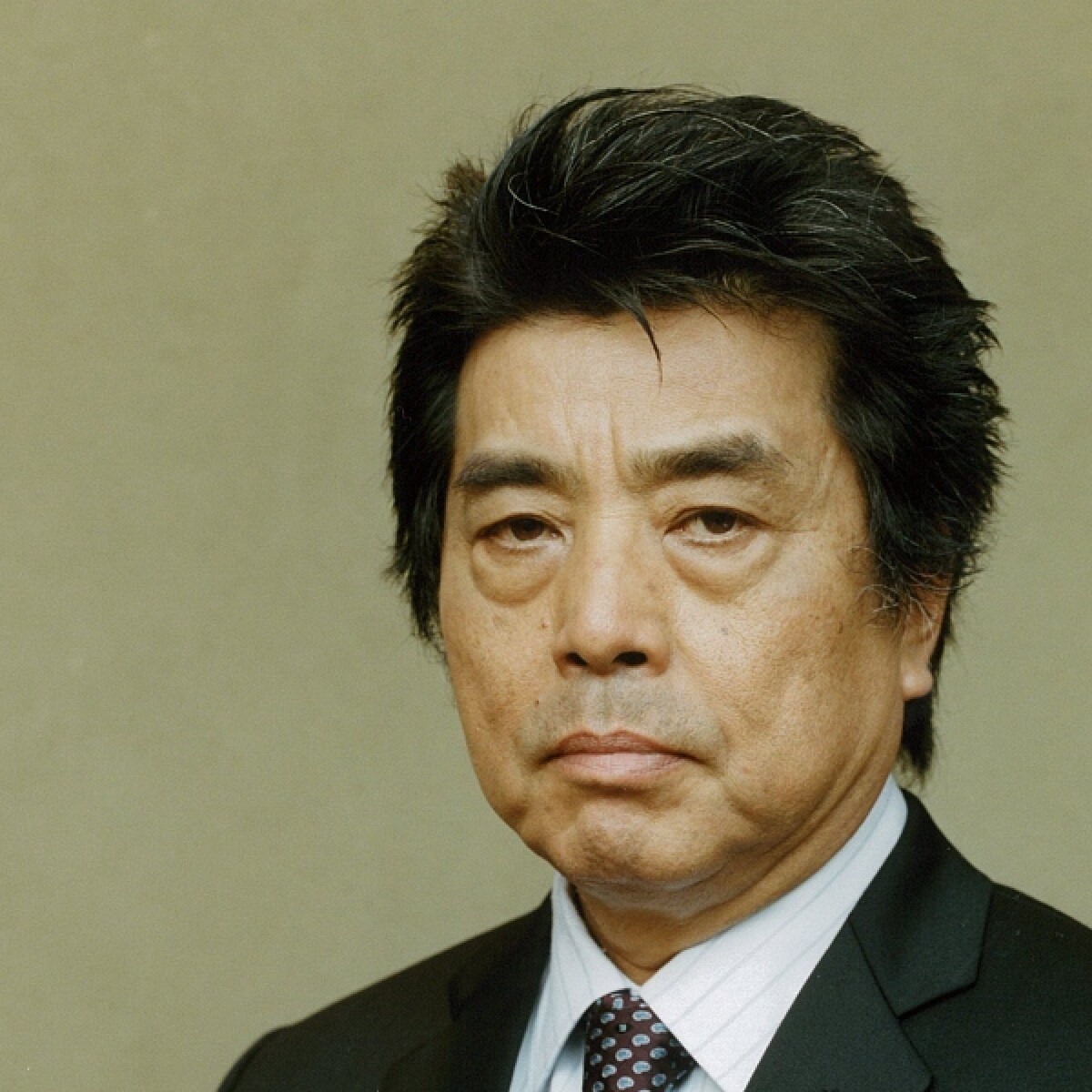Murakami Ryū
Ryū Murakami (February 19, 1952 in Sasebo, Nagasaki) is a Japanese novelist, short story writer, essayist and filmmaker. Murakami's novels explore human nature through themes of disillusion, drug use, surrealism, murder and war set against the dark backdrop of Japan. His most well-known novels are Almost Transparent Blue, Coin Locker Babies and In the Miso Soup.
He was born Ryūnosuke Murakami in Sasebo, Nagasaki on February 19, 1952. The name Ryūnosuke was taken from the main character in Daibosatsu-tōge, a piece of fiction by Nakazato Kaizan (1885–1944).
He attended primary, middle and senior high school in Sasebo. While a student in senior high, Murakami helped form a rock band called Coelacanth, in which he was the drummer. After the band’s breakup, he went on to join the rugby club, which he found especially grueling. He soon left the rugby club and transferred to the school’s newspaper department. In the summer of his third year in senior high, Murakami and his colleagues barricaded the rooftop of his high school and he was placed under house arrest for three months. During this time, he had an encounter with the hippie culture which influenced him greatly.
Murakami graduated from high school in 1970, around which time he went on to form yet another rock band and produce 8-millimeter indie films.
Murakami went to Tokyo and enrolled in the silkscreen department in Gendaishichosha School of Art, but dropped out halfway through the year. In October 1972, he moved to Fussa near the base of the U.S. Air Force and was accepted into the Musashino Art University in the sculpture program.
In the early 1990s, Murakami devoted himself to Cuban music. He introduced it to Japan and produced the concerts of Cuban musicians in Japan. Then he established his label, Murakami's in Sony Music.
Murakami started the e-mail magazine JMM (Japan Mail Media) in 1999. He serves as the chief editor.
Since 2006 he has hosted a TV talk show on business and finance called Kanburia Kyuden which is broadcast on TV Tokyo. The co-host is Eiko Koike. In the same year, Murakami began video streaming service, RVR (Ryu's Video Report).
Murakami established the new company G2010 to sell and produce eBooks on November 5, 2010.
Murakami launched the new private brand of G2010, 村上龍電子本製作所 (Murakami Ryū Denshibon Seisakusyo Ryū Murakami eBook Maker?) which published his writing and produce work to adjust the start of the iBookstore Japanese version in 2013.
Murakami's first work, the short novel Almost Transparent Blue, written while he was still a student of Musashino Art University, deals with promiscuity and drug use among disaffected Japanese youth. Critically acclaimed as a new style of literature, it won the Gunzō newcomer's literature prize in 1976 despite some observers decrying it as decadent. Later the same year, Blue won the Akutagawa Prize, going on to become a bestseller.
In 1980, Murakami published the much longer novel Coin Locker Babies, again to critical acclaim, for which he won the 3rd Noma Liberal Arts New Member prize. Afterward he wrote the autobiographical novel 69. His next work, Ai to Gensou no Fascism (1987) revolves around the struggle reforming Japan’s Survival of the Fittest model of society, by the secret "Hunting Society". His work in 1988, Topaz, is about a sadomasochistic woman’s radical expression of her sexuality.
Murakami's story The World in Five Minutes From Now (1994) is written as a point of view in a parallel universe version of Japan, which got him nominated for the 30th Tanizaki Prize. In 1996 he continued his autobiography 69, and released the Murakami Ryū Movie and Novel Collection. He also won the Hirabayashi Taiko literary prize. The same year, he wrote the novel Topaz II about a female high school student engaged in compensated dating, which later was adapted as a live action film Love and Pop by Anime director Hideaki Anno; as well as Popular Hits of the Showa Era, which concerns the escalating firepower of a battle between five teenage male and five middle-aged female social rejects.
In 1997 he wrote the psychological thriller novel In the Miso Soup, set in Tokyo's Kabuki-cho red-light district, which won him the Yomiuri Prize for Fiction that year. In 1999 he became the Editor in Chief of the mail magazine JMM which discusses the ‘bubble’ economy of Japan.
In 2000, he wrote Parasites (Kyōsei chū) about a young hikikomori who is fascinated by war, which won him the 36th Tanizaki Prize. The same year Exodus From Hopeless Japan (Kibō no Kuni no Exodus) was written, a story about junior high students who lose their desire to be involved in normal Japanese society, and instead create a new society over the internet.
In 2001, he became involved in his friend Ryuichi Sakamoto's group N.M.L. No More Landmine (see Zero Landmine), which involves the removal of landmines that are still buried in many countries around the world.
In 2004, Murakami announced the publication of 13 Year Old Hello Work, a work whose aim is to increase an interest in young people to go and find jobs and work. His next work Hantō wo Deyo (2005) is about the invasion of Japan by North Korea, which won him the 58th Noma Liberal Arts prize, and the 59th Mainichi Shuppan Culture Prize.
His novel Audition was adapted into a feature film by Takashi Miike. Murakami reportedly liked it so much he gave Miike his blessing to adapt Coin Locker Babies. The screen play was worked on by director Jordan Galland. However, Miike could not raise funding for the project. An adaptation directed by Michele Civetta is currently in production.
In 2011, Utau Kujira won the Mainichi Art Award.
Share:









